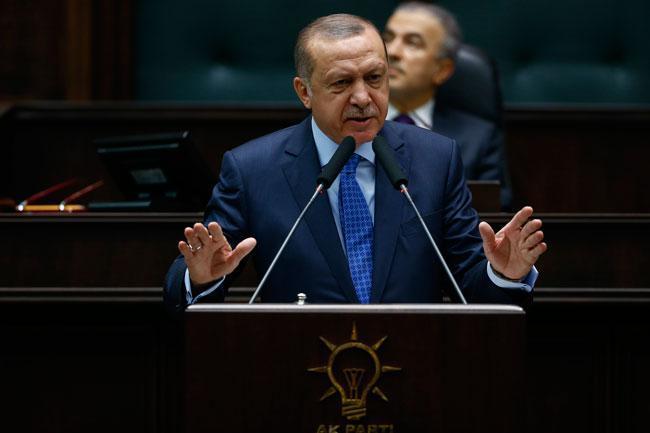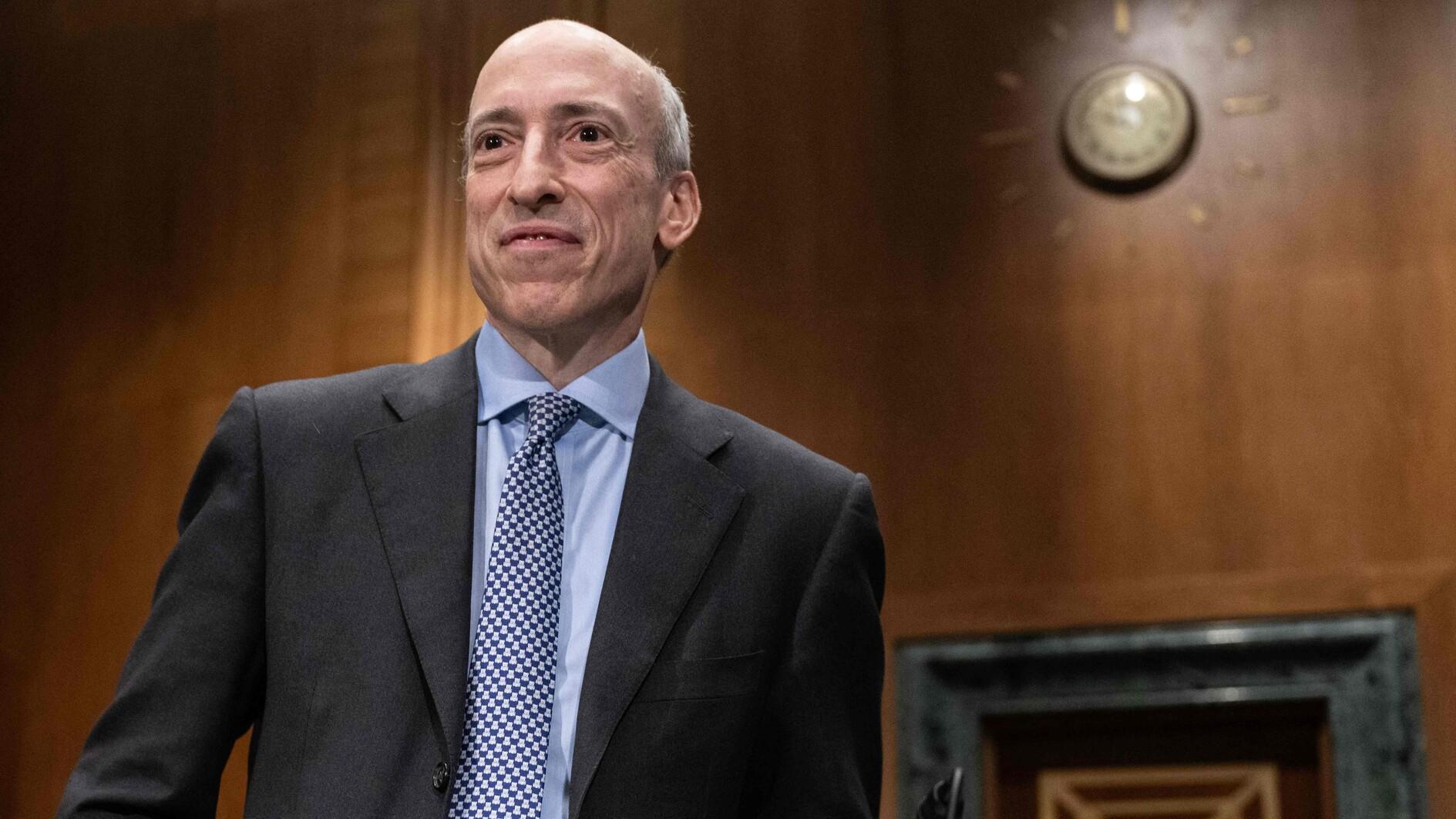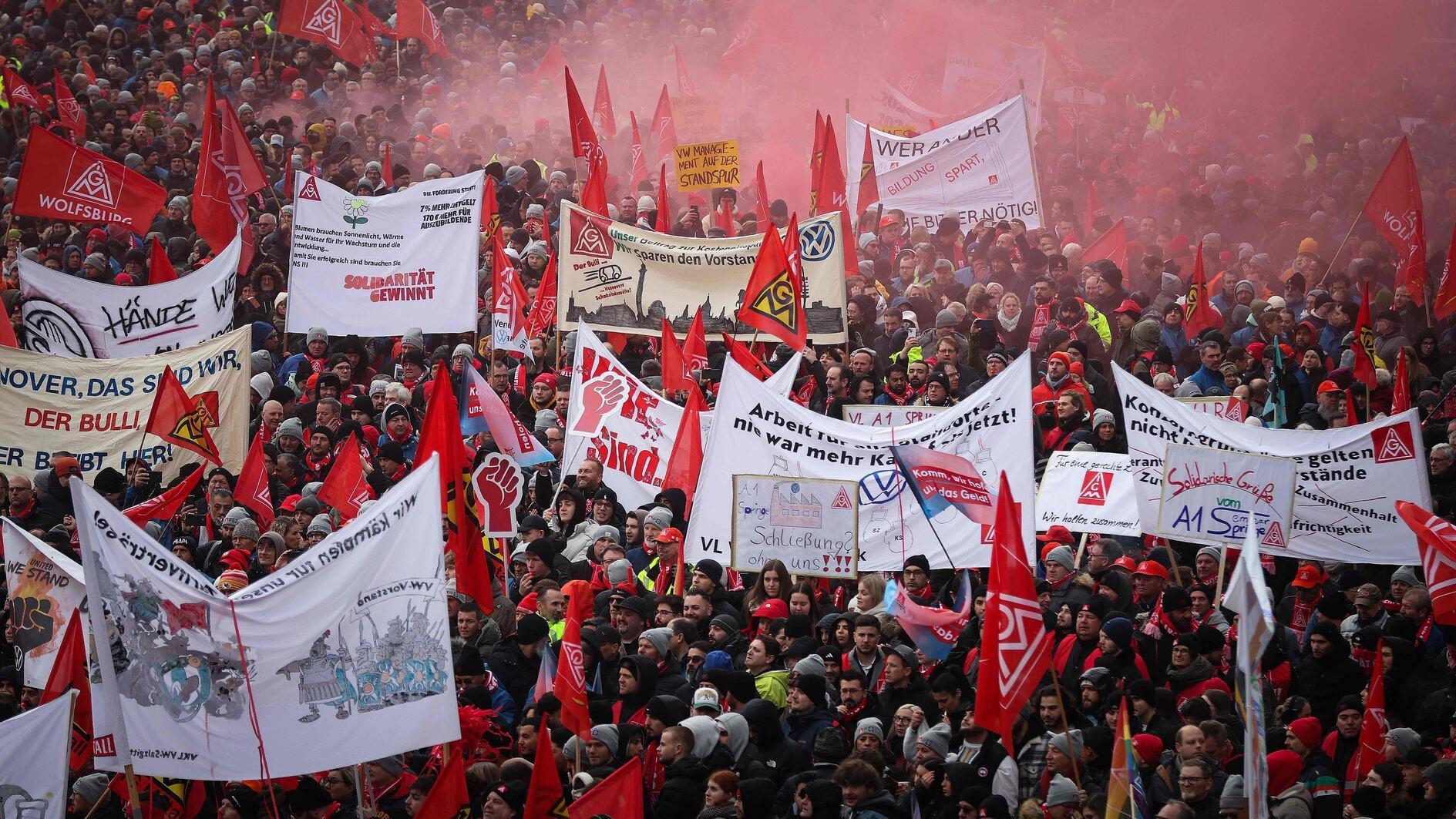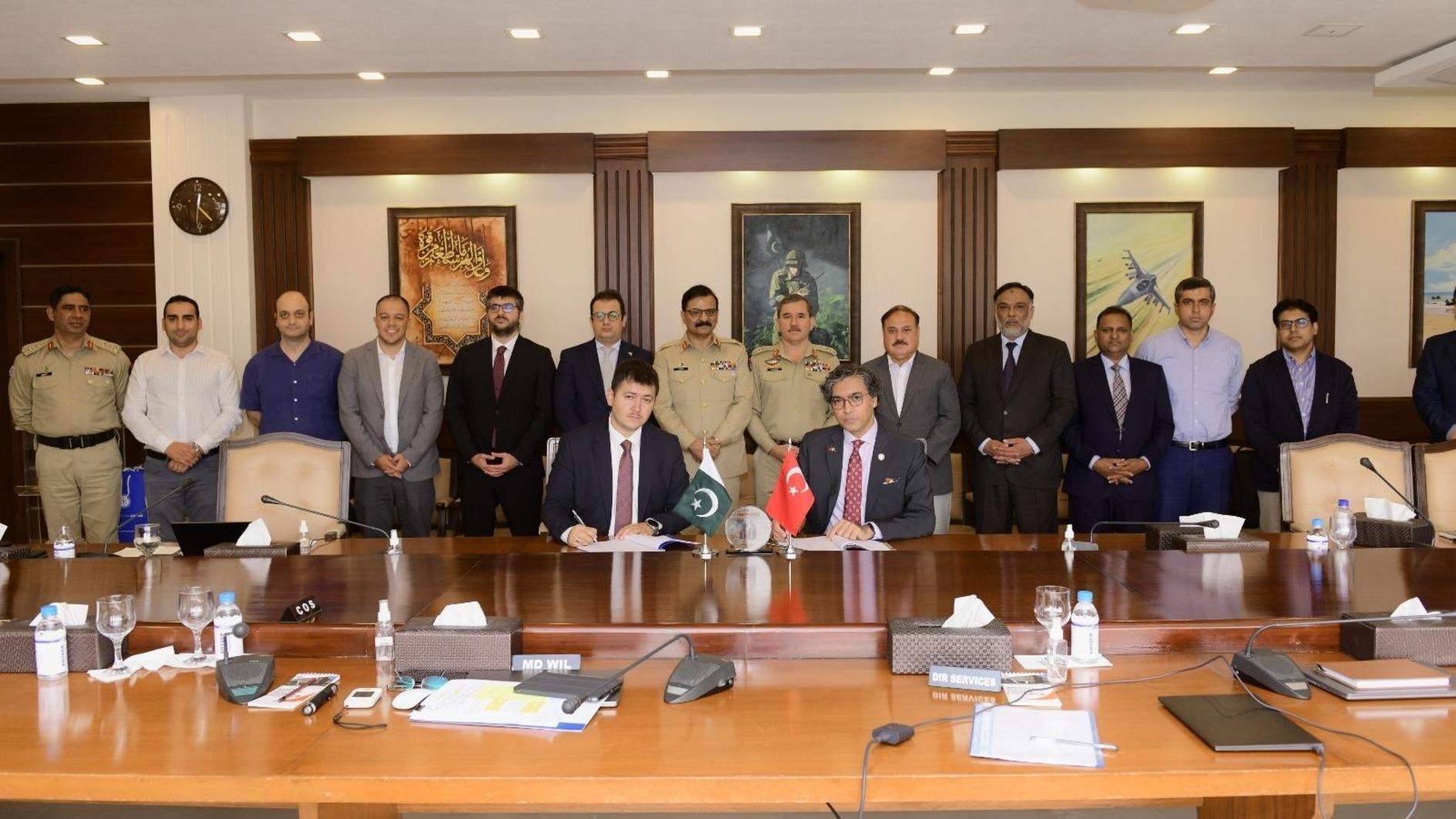Those behind Douma chemical attack will pay, Erdoğan says
ANKARA / WASHINGTON

Turkish President Recep Tayyip Erdoğan said on April 10 that the perpetrators of a chemical attack in Syria’s Douma would pay “a heavy price,” as international pressure on the Bashar al-Assad regime mounts, with the Pentagon reportedly offering U.S. President Donald Trump military options.
“Those who committed this massacre will definitely pay a heavy price. I curse those who committed this massacre,” Erdoğan said in an address to ruling Justice and Development (AKP) deputies at parliament.
“We are conducting talks [and] efforts over this. I had a phone conversation with Mr. [Russian President Vladimir] Putin yesterday. Talks will continue today and tomorrow,” he said.
The Pentagon is offering U.S. President Trump a series of military options to respond to the al-Assad regime’s latest use of chemical weapons on Syrian civilians, officials said on April 9.
“Our role is to provide the president with the options. In light of this horrific incident, that is where we’re looking at potential military options and providing them to the president,” Col. Patrick Ryder, spokesman for the Office of the Chairman of the Joint Chiefs, told state-run Anadolu Agency.
Ryder said the military option is definitely something that the U.S. is looking at and that Joint Chiefs Chairman Gen. Joseph Francis Dunford already met with Trump in this regard.
The White House said on April 10 that Trump skipped an upcoming summit in South America and will remain in the United States to “oversee the American response to Syria and to monitor developments around the world.”
France and Britain also ramped up pressure on Syria’s government by pledging strong reactions to the alleged toxic gas use.
France warned on April 10 that it would retaliate against al-Assad if evidence emerges that the “red line” of chemical weapons had been crossed in Douma.
British Prime Minister Theresa May said she would talk to Trump on the issue. When asked whether Britain would join the U.S. if Washington decides on further military action in Syria, May declined to answer the question directly but said: “We believe that those responsible should be held to account.” She also said she would be chairing a meeting of Britain’s National Security Council later on April 10.
In Damascus, government forces were on high alert in anticipation of a potential Western military strike, according to a war monitor.
“At midnight, the army command put all military positions on alert, including airports and all bases, for a period of 72 hours,” the Syrian Observatory for Human Rights stated on April 10.
Units were reinforcing positions and preparing themselves for rapid deployment, but troops had not been transferred or withdrawn, according to the Britain-based monitor, which relies on sources in Syria for its information.
Syrian regime forces have categorically denied accusations of using toxic gas including sarin and chlorine in the country’s brutal seven-year war.
On April 9, Syria’s U.N. ambassador Bashar al-Jaafari accused Western powers of “staging” such attacks to justify military action against Damascus.
Jaafari said Washington, Paris and others were falsely accusing his government of chemical use “in order to pave the way for an attack on Syria like the U.S. and Britain’s criminal aggression against Iraq in 2003.”
“From what we hear now, I am afraid they are looking for a military option, which is very, very dangerous,” Russian Ambassador Vassily Nebenzia said.
Douma is the last rebel-controlled area in Syria’s Eastern Ghouta, the opposition’s former stronghold on the edge of Damascus.
First responders in Douma say more than 40 people died on April 7 after the suspected poison gas attack, which left people wheezing, with discolored skin, and foaming at the mouth.
Douma has faced weeks of regime bombardment and is cut off by the regime, making it extremely difficult for journalists to independently verify the claims.
United Nations chief Antonio Guterres said on April 10 that the U.N.’s chemical weapons watchdog should be granted unfettered access to investigate the reports.
















